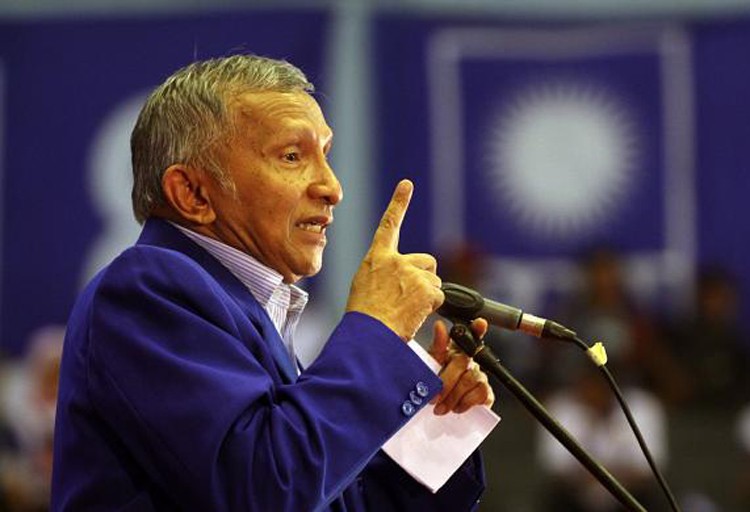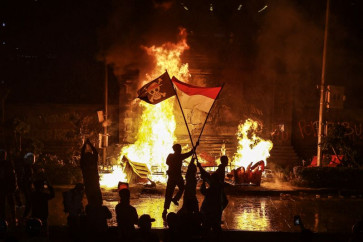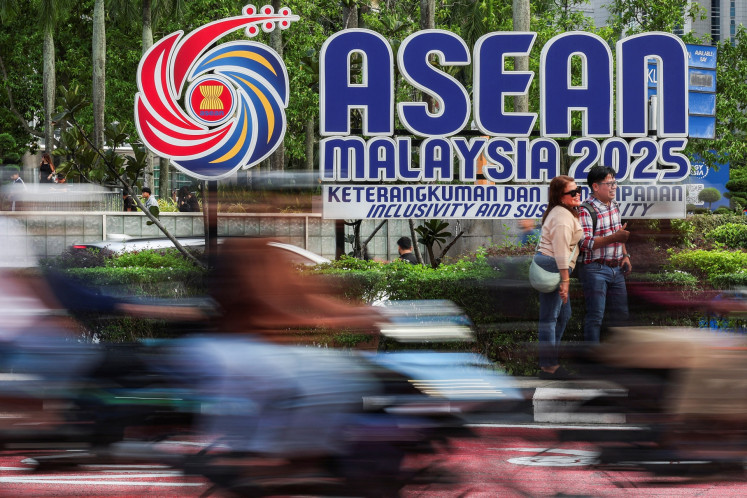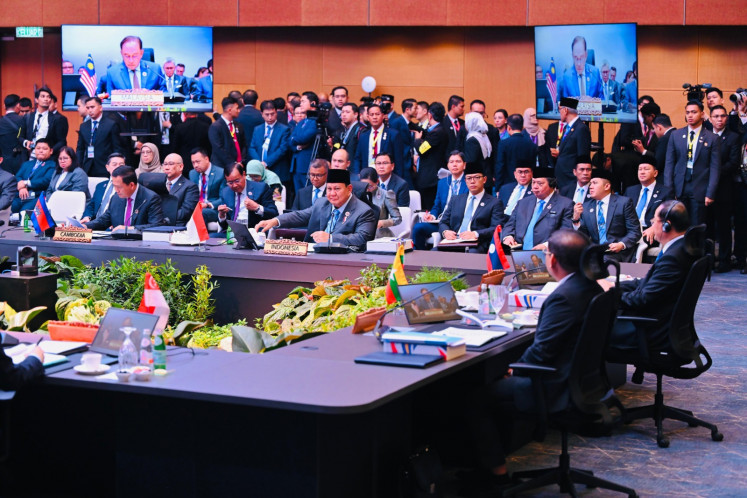Popular Reads
Top Results
Can't find what you're looking for?
View all search resultsPopular Reads
Top Results
Can't find what you're looking for?
View all search resultsSermons get political ahead of election
Change text size
Gift Premium Articles
to Anyone
I
n the heat of Jakarta’s gubernatorial election in which, for the first time in history, the frontrunner is a Christian and a Chinese-Indonesian, the nation’s religious authorities are calling on preachers to shun political talk in their sermons.
A fear of rising sectarianism in the election has emerged after Amien Rais, a senior National Mandate Party (PAN) politician, advised congregants during an Idul Adha prayer in a mosque in North Jakarta not to vote for Jakarta Governor Basuki “Ahok” Tjahaja Purnama, who has topped many political polls of late as the most electable candidate.
Amien reportedly told the congregants to vote for a gubernatorial candidate “who does not have a penchant for evictions, who does not serve the interests of capitalists”. The former speaker of the People’s Consultative Assembly (MPR) confirmed after the sermon that he was referring to Ahok.
Since taking the post of Jakarta governor in 2014, Ahok has carried out evictions to make way for what he claims are important projects for the city. His controversial policies have ignited protests from human rights activists as well as political attacks from his enemies.
The Indonesian Ulema Council (MUI) has rebuked Amien for introducing politics into his sermon, saying that as a senior politician he should have known better.
“That is not good. It could become an issue if people use sermons to attack each other,” the MUI said.
Houses of worship and educational institutions are among the places where political campaigning, no matter the form, are prohibited during a campaign season. This tradition is in fact stipulated in a General Elections Commission (KPU) regulation.
Abdul Mukti, the secretary-general of Muhammadiyah, said the organization required all of its members to abide by all regulations and laws in the country. Amien served as a former chairman of Muhammadiyah.
He said if Amien, who was once known as leader of the reform movement, was suspected of violating election regulations, then he should be reported to the Elections Supervisory Agency (Bawaslu).
As the Jakarta gubernatorial election draws near, the political heat generated by the event is believed to have encroached into the religious sphere and Amien’s case could be the tip of the iceberg.
Sectarianism was an issue during the 2012 Jakarta gubernatorial election when Ahok ran alongside then Surakarta mayor Joko “Jokowi” Widodo. At the time, dangdut singer-cum-preacher Rhoma Irama called on Muslim voters not to vote for Jokowi, whose mother, he falsely claimed, was a Christian.
He made the statement while delivering a sermon at the Al Isra Mosque in West Jakarta. The incident was reported to the Elections Supervisory Committee (Panwaslu).
Talk about Jakarta’s election may have also entered into churches. A video on YouTube shows a woman talking in front of a church congregation, praising Ahok and calling him a future leader. It is unclear where or when the video was taken.
Jeirry Sumampow, a spokesperson for the Indonesian Communion of Churches (PGI), said the organization had called on all its members throughout the country to avoid carrying out political campaigns in churches because this could develop into a very sensitive issue.
“Houses of worship are places for [conveying] good morality and not politics,” he said.
Some political analysts, however, believe that criticizing political figures, even if the criticisms are conveyed in a house of worship, is fine in a democracy as long as the criticism is aimed at improving existing policies.
“Criticism is fine as long as it does not involve attacking a figure racially,” Pelita Harapan University political analyst Emrus Sihombing told The Jakarta Post.










